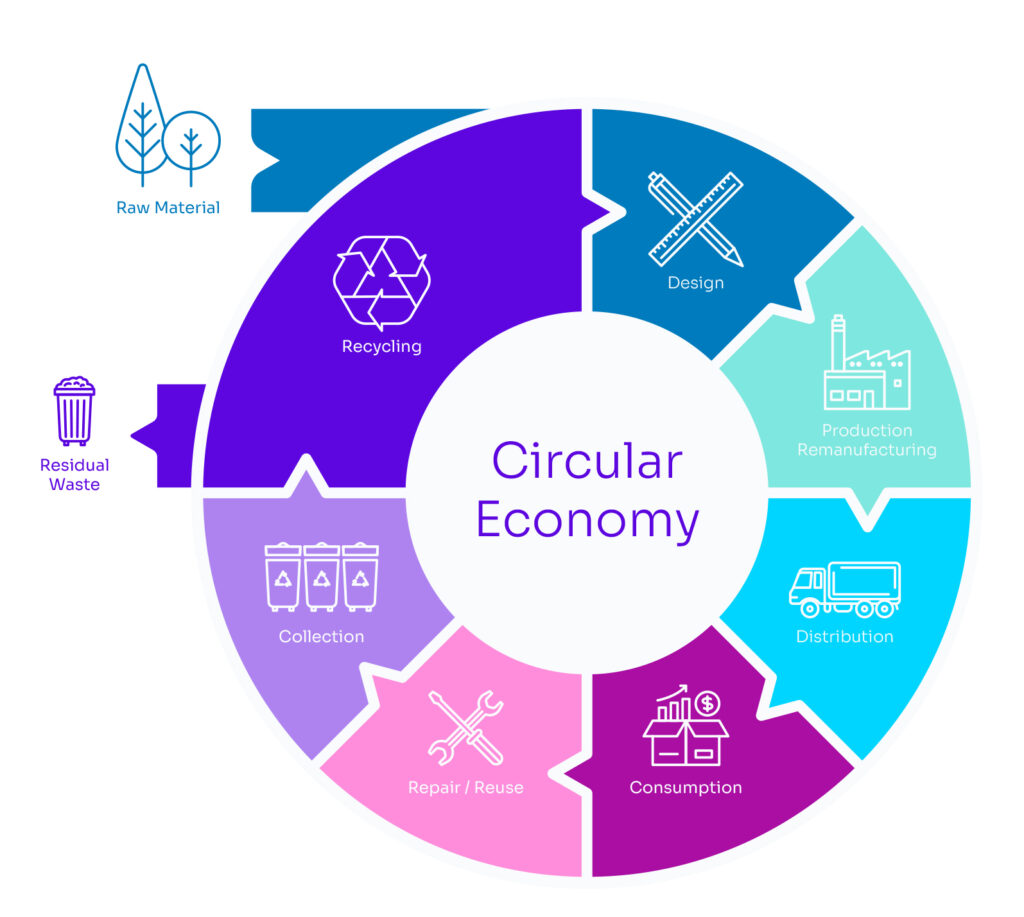Circular economy & supply chain management

We seek to focus on specific companies and sectors where the effective management of suppliers is a principal business risk. The complex and extensive nature of supply chains in a globalised world presents many sustainability and socioeconomic risks.
What is the circular economy?
The Ellen Macarthur Foundation defines it as ‘a systemic approach to economic development designed to benefit businesses, society, and the environment. In contrast to the ‘take-make-waste’ linear model, a circular economy is regenerative by design and aims to gradually decouple growth from the consumption of finite resources’.

Climate, Circular Economy & Supply Chain Management: LyondellBasell – equities
EOS has been engaging with LyondellBasell on climate change and the circular economy. Following this engagement, LyondellBasell prioritised actions in its 2020 sustainability report to eliminate plastic waste from the environment including waterways and oceans and to advance a circular economy. The company has a goal to produce and market two million metric tons of recycled and renewable-based polymers annually by 2030. To deliver on this ambition, it recently announced a new organisational structure including a Circular and Low-Carbon Solutions business segment and is strategically investing along the value chain. Whilst a quantifiable water goal was not set by the company, water management efforts are well covered in the sustainability report. Overall, this progress is positive to see, engagement continues.
Next steps
- Participate in the Mining 2030 steering committee, contributing to the development of a mining 2030 investor agenda
- Continue to raise awareness across the wider investment